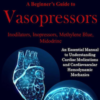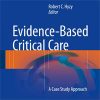Thromboinflammation and Antithrombotics in COVID-19
jamanetwork.comThrombotic complications of SARS-CoV-2 infection were recognized early in the pandemic, when infected patients often presented with abnormal coagulation findings and acute macrovascular obstruction, and evidence of pulmonary microvascular thrombosis was identified on autopsy.
The inflammatory response to SARS-CoV-2 infection commonly results in marked activation of coagulation—the process of thromboinflammation—with evidence of systemic endothelial damage and a resultant loss of normal anticoagulant properties.
In this milieu of acute endothelial dysfunction and coagulopathy, platelets are hyperreactive with increased responsiveness to activation stimuli, have altered gene expression profiles, and present phenotypic changes indicative of abnormal platelet-leukocyte interactions.
Given this situation, multiple randomized trials were initiated early in the pandemic to address the platelet-mediated consequences of COVID-19.
Yet, while the rationale for adding antiplatelet therapy to anticoagulation was compelling, 3 recent clinical trials that addressed the potential utility of aspirin or P2Y12 inhibitors among COVID-19 inpatients as well as 1 trial of COVID-19 outpatients do not support this approach.

















